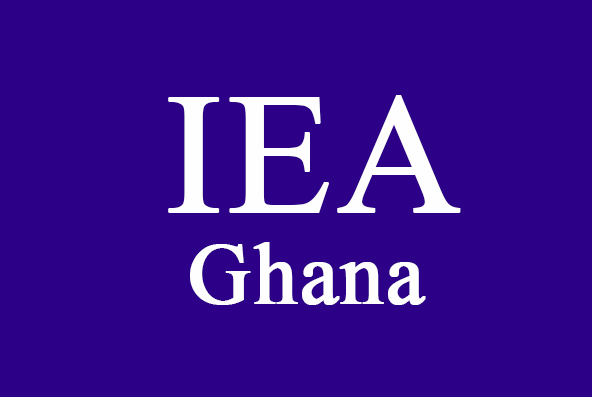The Institute of Economic Affairs (IEA) has described the 2023 Budget as a make or break one”, saying if it fails to get it right, near-irreversible damage could be done to the economy.
According to the institute, the budget must not be business as usual.
It therefore wants a budget that will demonstrate consideration for a new fiscal policy paradigm capable of delivering sustained macroeconomic stability and growth as well as indicate an ambitious revenue mobilisation profile.
“It must break from the past and chart a new course to restore macroeconomic stability, while laying the foundation for long-term sustainable growth and poverty alleviation”, Dr. John Kwakye, Director of Research at the IEA revealed at a Pre-Budget conference.
“The 2023 budget must break from this unacceptable past. We believe that we should be able to increase tax revenue/Gross Domestic Product to at least 15-16% in 2023 and further to 18-20% in 2024. At the same time, total revenue/GDP could be increased to 18-20% in 2023 and 22-25% in 2024”, the IEA stressed.
It, therefore, wants the closure of the tax loopholes and the address of inefficiencies within the tax collection space.
On extractive tax, Ghana derives inadequate revenue from its huge natural resource wealth due to a combination of inappropriate fiscal regimes and lack of enforcement of agreed regimes. IEA therefore wants government to review all extractives tax regimes to ensure that Ghana derives adequate benefits. It must also ensure that agreed regimes are fully enforced.
Regarding the Electronic Transaction Levy, the IEA noted that the levy is not only a multiple tax but also a nuisance tax that has failed to live up to its expectation.
However, rather than scrap it completely, “we suggest reducing the rate from 1.50% to 0.50%. By doing so, it may prevent people from trying to evade the levy, and Government may in the end rake in more than under the current 1.50% rate”.
Dealing with expenditure rigidities and imbalances
In terms of dealing with expenditure rigidities and imbalances, the institute wants the anomaly in the country’s expenditure in both economic and functional terms. Economic classification of expenditure is based on the recurrent-capital divide, while functional classification is based on sectoral allocation.
For recurrent and capital expenditure, it pointed out that expenditure has been heavily skewed in favour of the former and against the latter. This, it explained, constitutes wrong prioritisation of expenditure and is inimical to growth.
Using the 2022 budget as an example, recurrent expenditure accounts for almost 90% of the total, while capital expenditure (CAPEX) accounts for a mere 10%.
On functional classification of expenditure, it stressed that it is useful to look at expenditure allocation on a functional basis in order to ascertain the importance attached to each sector of the economy.
“In the 2022 budget, out of the five broad sectors—Administration, Economic, Social, Infrastructure and Public Safety—the Social sector tops the list by far with about 50% of the total allocation, followed by Public Safety and then closely by Administration, while the Infrastructure and Economic sectors fall far behind”, it added
Monetary policy must deliver low inflation, interest rates
The IEA also wants monetary policy to deliver low inflation and interest rates so as to create a stable macroeconomic environment supportive of growth.
Unfortunately, it noted that monetary policy has been less successful in delivering these outcomes.
This is because high inflation and interest rates have been the norm, with inimical effects on the economy.
Exchange rate
The IEA expressed concern about the country’s exchange rate depreciation which it said has also been a major factor in recent inflation, “as it has been in past inflations as well, acting through import prices, while also disrupting business operations”.
The causes are two-fold underlying defective structure of the economy that sustains foreign exchange demand-supply gap, and imprudent monetary and fiscal policies that fuel aggregate demand. The solutions, which we dub “structural” and “financial,” must be targeted to the causes.
Latest Stories
-
Mahama vows to create an agro-processing zone in Afram Plains
9 mins -
Political parties should plan for losses, not just wins – IGP advises
11 mins -
524 Diasporan Africans granted Ghanaian citizenship in ceremony
12 mins -
Mahama urges Afram Plains North residents to avoid ‘skirt and blouse’ voting
14 mins -
Asantehene receives more 19th century gold ornament and regalia
21 mins -
Hohoe Ghana Blind Union organises training for members ahead of Election 2024
28 mins -
Alan Kyerematen reveals his future plans for Ghanaian Health professionals
29 mins -
AAIN empowers women and small enterprises in Upper East Region through SHINE project
30 mins -
Akufo-Addo leads nationwide commissioning of 80 educational projects
36 mins -
Ghana and Seychelles strengthen bilateral ties with focus on key sectors
1 hour -
National Elections Security Taskforce meets political party heads ahead of December elections
1 hour -
Samsung’s AI-powered innovations honored by Consumer Technology Association
2 hours -
Fugitive Zambian MP arrested in Zimbabwe – minister
2 hours -
Town council in Canada at standstill over refusal to take King’s oath
2 hours -
Trump picks Pam Bondi as attorney general after Matt Gaetz withdraws
2 hours

